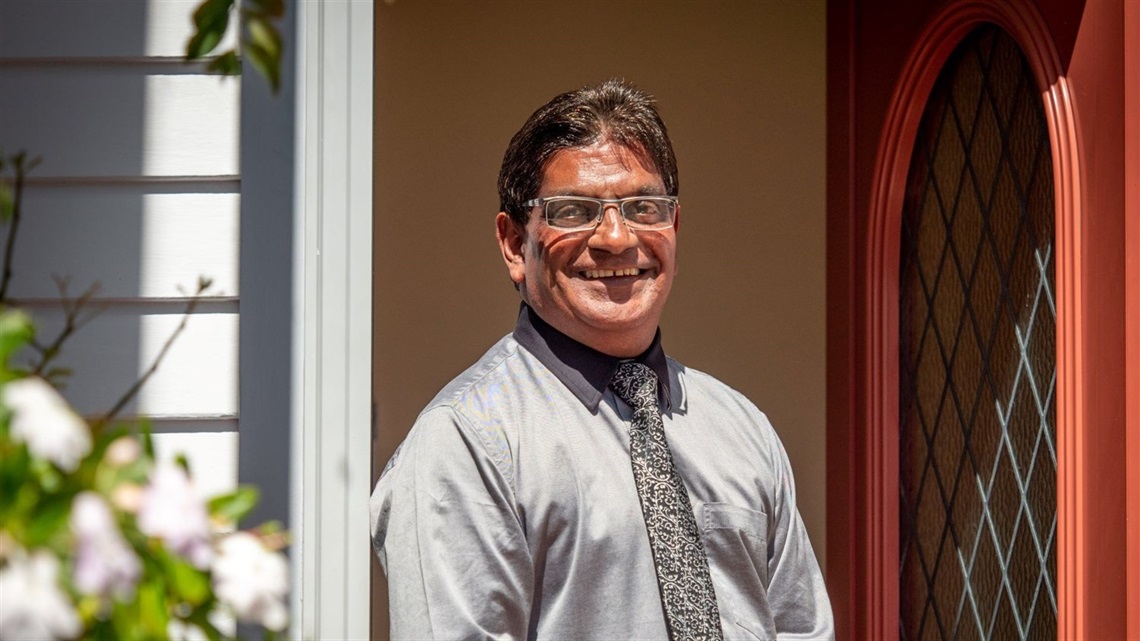Paul Patel: Civic Award winner 2020
Published on 28 October 2020

A desire to see Indian heritage, culture and communities prosper in New Zealand, combined with a love of sport, has been inspiring Paul Patel outside his working hours for almost four decades.
Over the decades, Paul’s organisational skills, perception, perseverance and experience have helped build partnerships that lead to greater cultural understanding, while contributing to wider community connection and resilience.
Paul fits his many community activities around his career as a self-employed project manager and architectural designer for the Ministry of Education.
A hockey player and a keen darts exponent, the inkling that he had strengths as an organiser first came in December 1977 when Paul decided to organise a dinner for the touring Indian National Women’s Cricket team.
Then, as a member of an informal Whanganui/Manawatū combined sports club, he wondered if an official sports organisation would benefit and encourage the sporting activities of others.
He rallied other members of the local Indian community to create the Central Districts Indian Sports Club in 1982 and was elected its first president – a position he held until 1996.
During this period he was also club captain of the Manawatū Darts Association, played in two New Zealand darts finals, wrote a regular newspaper darts column, served as president of the association, and was made a Life Member in 1989.
Paul was also concerned that the region’s widely scattered Indian communities lacked a voice. The Manawatū/Hawke's Bay Indian Association founded by his grandfather in 1945 had all but lapsed, and Paul decided to revive it.
Elected association president in 1989, he set about rebuilding its profile, reconstituting the organisation as the Central Districts Indian Association. He remained its president until 2016 and still serves the organisation as vice-president.
This led to his involvement with the New Zealand Indian Central Association – a national umbrella body for regional groups.
Paul has served as a member of the national executive, as sub-committee chair, vice-president and is in his second term as president – quite an accomplishment when the majority of Central Association members live in the Auckland region.
The role has seen him working closely with officials from the Indian High Commission, Immigration NZ, the Department of internal Affairs, NZ Police and the Office of Ethnic Affairs to represent the interests and concerns of the wider Indian community.
Paul has devoted time and energy to preparing the national association’s submission for the Royal Commission of Inquiry into the Christchurch mosque attacks.
He is also proactive in bringing to the attention of the relevant agencies, issues such as:
- robberies and assaults on small business owners
- culturally arranged marriages, and the
- provision of pastoral care for international students.
He says Covid exposed deficiencies in the way agencies responded to community concerns. Among them were the culturally sensitive issues of funerals for Māori, Pasifika and other ethnic groups, and he looked for ways of having these and other issues appropriately resolved.
In 2008, prompted by a national spate of robberies, Paul in conjunction with NZ Police, local business owners and central government representatives, organised community safety and crime prevention meetings.
His idea of a Business WhatsApp Group linked by phone to counter crime was embraced by Indian and non-Indian businesses.
Providing a quiet voice of reason, insight, experience and advocacy, Paul has helped set up the Central Districts Community Advisory Board with Police and other agencies.
He is also a champion for the rights of victims – personally encouraging those who have suffered from crime to follow through by making impact statements that judges can take notice of. He says that all too often, victims are not aware of their rights or the steps they can take to exert these. For instance, he asks how many people have ever heard of the Office of the Chief Victims Advisor or were aware that such an entity existed.
An active member of the Manawatū Multicultural Council for over 20 years, and a supporter of the Festival of Cultures, Paul has long lobbied for the Indian Diwali Festival of Lights to be given greater prominence and made accessible to a wider audience.
His vision and persistence was realised last year when with Council support, Te Marae o Hine hosted the first Diwali in The Square celebrations, with the second event coming up this year on Saturday 7 November.